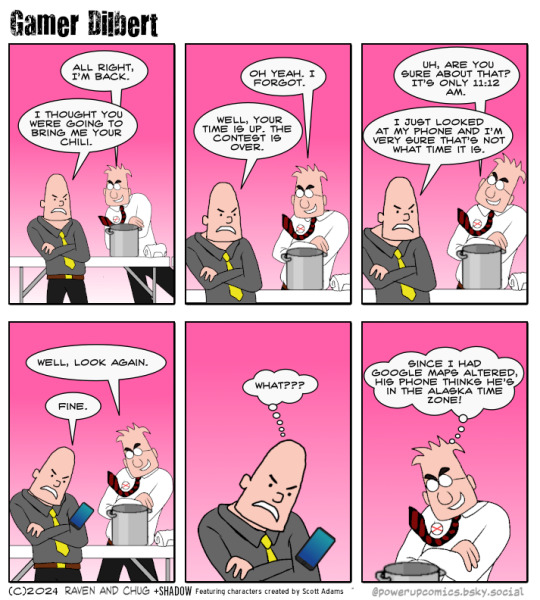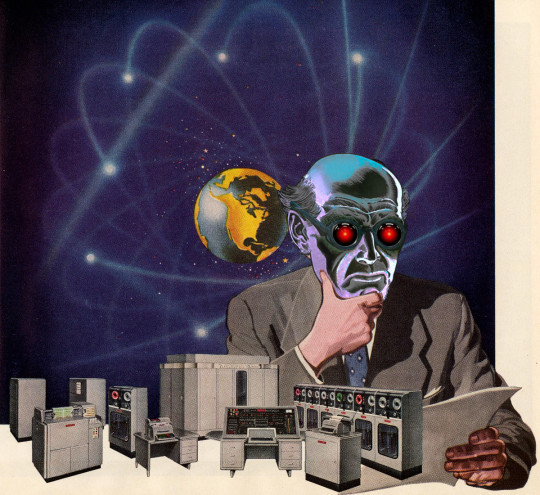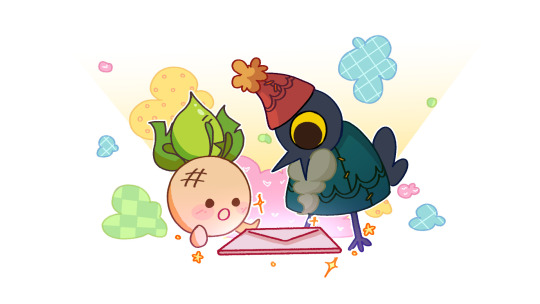#Google Maps for Android
Explore tagged Tumblr posts
Text
Google Maps Kya hai | Google Maps in Hindi
Google Maps का उपयोग हर दिन करोड़ों लोग अपने दैनिक कामों में करते हैं। चाहे यात्रा करनी हो, किसी नए स्थान के बारे में जानना हो, या अपने नजदीकी व्यवसायों के बारे में जानकारी चाहिए हो, Google Maps हर प्रकार की जानकारी एक क्लिक में उपलब्ध कराता है। यह लेख आपको गूगल मैप के फीचर्स, इसके उपयोग के तरीके, इसकी तकनीकी पहलुओं और इसके फायदे व नुकसान के बारे में विस्तार से जानकारी देगा। 1. Google Maps क्या…
#benefits of Google Maps#explore on Google Maps#Google Maps#Google Maps 3D view#Google Maps directions#Google Maps features#Google Maps for Android#Google Maps for businesses#Google Maps for iOS#Google Maps interface#Google Maps Live View#Google Maps navigation#Google Maps nearby places#Google Maps transit information#how to use Google Maps#offline maps Google Maps#real-time traffic on Google Maps#Street View on Google Maps
0 notes
Text

#Gamer Dilbert#Powerup Comics#Dilbert#CEO#Chili Contest#Google Maps#I don't think the android clock is actually set by google maps but this is a heightened reality#Webcomics#comics
50 notes
·
View notes
Text
Can someone confirm something for me? On mobile, on googlemaps.com, look up any business of your choosing by name and not address, can you copy the address?
My dad couldn't find a business and I couldn't copy the text so I had to manually type it to text it to him.
My phone is so modified that I can never tell if something is broken because I fucked with it or if that's how it is :/
Here's what I have
Pixel fold gen 1
Flashed with CalyxOS
Firefox
Buncha extensions
Duckduckgo filter for tracking
1 note
·
View note
Text
President Marcos signs into law VAT on foreign digital services
Foreign entities that provide digital services to their customers here in the Philippines will have to pay their fair share of taxes as President Ferdinand “Bongbong” Marcos, Jr., recently signed into law Republic Act Number 12023 (RA12023) which imposes the 12% value-added tax (VAT) on foreign digital service providers (DSPs), according to a Philippine News Agency (PNA) news article. To put…
#Asia#Blog#blogger#blogging#Bongbong Marcos#business#business confidence#business news#Carlo Carrasco#digital#digital economy#digital service providers (DSPs)#digital services#Disney#Disney+#economics#economy#Economy of the Philippines#Ferdinand Marcos#geek#Google#Google Android#Google Chrome#Google Maps#Google Play#Google Search#governance#law#Marcos#Metro Manila
1 note
·
View note
Video
youtube
Transforma tu coche con CarPlay Inalámbrico y Android Auto AI Box con Ne...
#youtube#autoabc carplay androidauto skoda netflix youtube carplaybarato android apple pantalla spotify google maps googlemaps
0 notes
Text

YES YES YES YES YES YES YES YES
#original#programming is going great!#looked up the coordinates on google maps and apparently it's in the google headquarters#so i'm guessing that's the default location for the android emulator?#in any case it's not meaningless gibberish so this is going GREAT!#today is a good day
0 notes
Text
Google has updated its Maps app on Android to display weather and air quality information when using the map layer.
0 notes
Text
19 Latest Features and Updates on Android: Making Your Device More Expressive and Sophisticated
Android has recently rolled out 19 new features and updates designed to enhance your personalized experience on smartphones, Google TV, and Wear OS smartwatches. These latest Android updates aim to make your devices more helpful, user-friendly, secure, and, of course, more expressive. Let’s explore these 19 new Android updates that will elevate your device usage. 1. Emoji Kitchen Stickers on…

View On WordPress
#Accessibility Suite#Android#Gboard#Gmail#Google Maps#Google Messages#Google Photos#Google Play Protect#Google TV#Personal Safety app#Wear OS#YouTube
0 notes
Text
Google: Revolutionizing the Digital Landscape in 100 Words
Google, founded in 1998 by Larry Page and Sergey Brin, has become synonymous with internet search. This tech giant’s mission is to organize the world’s information and make it universally accessible and useful. Google Search processes billions of queries daily, providing instant access to knowledge. Beyond search, Google has diversified into products like Android, Chrome, and YouTube, connecting…

View On WordPress
#Android#Artificial Intelligence#Chrome#Cloud Computing#Digital Revolution.#Google#Google Drive#Google Maps#Google Photos#Innovation#Internet#Larry Page#Search Engine#Sergey Brin#Technology#YouTube
1 note
·
View note
Note
I read you from a small Mexican town with less than 5,000 habitants, our streets have no pavement, we steal electricity from a nearby city and we do not show up in Google Maps, Waze or any GPS app. (To be fair, I only stay here a few months of the year, still, POOKIE your amazing writing is INTERNATIONAL 💕💕)
Mexican baddie in the inbox woo hoo!!
I think as a fellow developing country girly, it's just so fun to imagine my readers in similar scenarios to me. Like we're all active in this niche but from places you'd never expect.
Like, I post all of my stuff from a busted android, live in a house that pre-dates my country's democracy and sometimes the WiFi cuts out because they stole the cables again. Like you wouldn't expect yandere smut to be coming from a place like that y'know?

#“Val stop writing noncon your democracy is crumbling”#Never. Smut is the foundation of freedom#You can take my rights but you can never take my slow burn enemies to lovers poly yandere fanfiction
132 notes
·
View notes
Text
Twine/SugarCube ressources
Some/most of you must know that Arcadie: Second-Born was coded in ChoiceScript before I converted it to Twine for self-publishing (for various reasons).
I have switched to Ren'Py for Cold Lands, but I thought I would share the resources that helped me when I was working with Twine. This is basically an organized dump of nearly all the bookmarks I collected. Hope this is helpful!
Guides
Creating Interactive Fiction: A Guide to Using Twine by Aidan Doyle
A Total Beginner’s Guide to Twine
Introduction to Twine By Conor Walsh (covers Harlowe and not SugarCube)
Twine Grimoire I
Twine Grimoire II
Twine and CSS
Documentation
SugarCube v2 Documentation
Custom Macros
Chapel's Custom Macro Collection, particularly Fairmath function to emulate CS operations if converting your CS game to Twine
Cycy's custom macros
Clickable Images with HTML Maps
Character pages
Character Profile Card Tutorial
Twine 2 / SugarCube 2 Sample Code by HiEv
Templates
Some may be outdated following Twine/SugarCube updates
Twine/Sugarcube 2 Template
Twine SugarCube template
Twine Template II
Twine Template by Vahnya
Sample Code and more resources
A post from 2 years ago where I share sample code
TwineLab
nyehilism Twine masterpost
How to have greyed out choices
idrellegames's tutorials
Interactive Fiction Design, Coding in Twine & Other IF Resources by idrellegames (idrellegames has shared many tutorials and tips for Twine, browse their #twine tag)
How to print variables inside links
How do I create a passage link via clicking on a picture
App Builder
Convert your Twine game into a Windows and macOS executable (free)
Convert your Twine game into a mobile app for Android and iPhone (90$ one-time fee if memory serves me right) // Warning: the Android app it creates is outdated for Google Play, you'll need to update the source code yourself
252 notes
·
View notes
Note
Genuine question, if Apple sucks and Google sucks, what phone do I get? Like, I'm a proponent of Fuck Google, but I have an Android cause I'm a bigger proponent of Fuck Apple, and I don't really have a great way to reconcile these feelings of conflict
I address this a bit in the degoogling pamphlet; iphones are genuinely better for privacy and I think the phone side of apple is less terribly reprehensible than the computer side if for no other reason than market forces prevent them from gouging quite as excessively. If you own an android your best bet is to turn off location data (everyone should be doing this for all of their devices anyway) uninstall as many apps as possible, force stop or disable as many apps as possible, deny every possible permission it is possible to deny, and never use your phone for sensitive work.
Your other option is to look into linux phones, which are out there, but don't have the same kind of app ecosystem or broad support as ios or android.
And the thing that I really think everyone should do that nobody actually likes hearing is to stop using your phone as anything but a phone. They can't track your data if you don't use it. I recognize that people need phones now in a way they didn't in the past (2fa is a huge part of this; people are either using SMS or apps to verify and that means it's not as easily dismissed as a necessity as it was 10 years ago) but there's a huge part of me that's like "I want to replace my smartphone with a jitterbug."
If you can't actually replace your smartphone with a jitterbug you can at least pretend that it isn't anything but a phone with a few limited extra tools.
(Also this is my "the boomers are right about..." thing: everyone should uninstall navigation applications and go back to reading maps and pre-planning their route to their destination)
1K notes
·
View notes
Text
Big Tech disrupted disruption

If you'd like an essay-formatted version of this post to read or share, here's a link to it on pluralistic.net, my surveillance-free, ad-free, tracker-free blog:
https://pluralistic.net/2024/02/08/permanent-overlords/#republicans-want-to-defund-the-police

Before "disruption" turned into a punchline, it was a genuinely exciting idea. Using technology, we could connect people to one another and allow them to collaborate, share, and cooperate to make great things happen.
It's easy (and valid) to dismiss the "disruption" of Uber, which "disrupted" taxis and transit by losing $31b worth of Saudi royal money in a bid to collapse the world's rival transportation system, while quietly promising its investors that it would someday have pricing power as a monopoly, and would attain profit through price-gouging and wage-theft.
Uber's disruption story was wreathed in bullshit: lies about the "independence" of its drivers, about the imminence of self-driving taxis, about the impact that replacing buses and subways with millions of circling, empty cars would have on traffic congestion. There were and are plenty of problems with traditional taxis and transit, but Uber magnified these problems, under cover of "disrupting" them away.
But there are other feats of high-tech disruption that were and are genuinely transformative – Wikipedia, GNU/Linux, RSS, and more. These disruptive technologies altered the balance of power between powerful institutions and the businesses, communities and individuals they dominated, in ways that have proven both beneficial and durable.
When we speak of commercial disruption today, we usually mean a tech company disrupting a non-tech company. Tinder disrupts singles bars. Netflix disrupts Blockbuster. Airbnb disrupts Marriott.
But the history of "disruption" features far more examples of tech companies disrupting other tech companies: DEC disrupts IBM. Netscape disrupts Microsoft. Google disrupts Yahoo. Nokia disrupts Kodak, sure – but then Apple disrupts Nokia. It's only natural that the businesses most vulnerable to digital disruption are other digital businesses.
And yet…disruption is nowhere to be seen when it comes to the tech sector itself. Five giant companies have been running the show for more than a decade. A couple of these companies (Apple, Microsoft) are Gen-Xers, having been born in the 70s, then there's a couple of Millennials (Amazon, Google), and that one Gen-Z kid (Facebook). Big Tech shows no sign of being disrupted, despite the continuous enshittification of their core products and services. How can this be? Has Big Tech disrupted disruption itself?
That's the contention of "Coopting Disruption," a new paper from two law profs: Mark Lemley (Stanford) and Matthew Wansley (Yeshiva U):
https://papers.ssrn.com/sol3/papers.cfm?abstract_id=4713845
The paper opens with a review of the literature on disruption. Big companies have some major advantages: they've got people and infrastructure they can leverage to bring new products to market more cheaply than startups. They've got existing relationships with suppliers, distributors and customers. People trust them.
Diversified, monopolistic companies are also able to capture "involuntary spillovers": when Google spends money on AI for image recognition, it can improve Google Photos, YouTube, Android, Search, Maps and many other products. A startup with just one product can't capitalize on these spillovers in the same way, so it doesn't have the same incentives to spend big on R&D.
Finally, big companies have access to cheap money. They get better credit terms from lenders, they can float bonds, they can tap the public markets, or just spend their own profits on R&D. They can also afford to take a long view, because they're not tied to VCs whose funds turn over every 5-10 years. Big companies get cheap money, play a long game, pay less to innovate and get more out of innovation.
But those advantages are swamped by the disadvantages of incumbency, all the various curses of bigness. Take Arrow's "replacement effect": new companies that compete with incumbents drive down the incumbents' prices and tempt their customers away. But an incumbent that buys a disruptive new company can just shut it down, and whittle down its ideas to "sustaining innovation" (small improvements to existing products), killing "disruptive innovation" (major changes that make the existing products obsolete).
Arrow's Replacement Effect also comes into play before a new product even exists. An incumbent that allows a rival to do R&D that would eventually disrupt its product is at risk; but if the incumbent buys this pre-product, R&D-heavy startup, it can turn the research to sustaining innovation and defund any disruptive innovation.
Arrow asks us to look at the innovation question from the point of view of the company as a whole. Clayton Christensen's "Innovator's Dilemma" looks at the motivations of individual decision-makers in large, successful companies. These individuals don't want to disrupt their own business, because that will render some part of their own company obsolete (perhaps their own division!). They also don't want to radically change their customers' businesses, because those customers would also face negative effects from disruption.
A startup, by contrast, has no existing successful divisions and no giant customers to safeguard. They have nothing to lose and everything to gain from disruption. Where a large company has no way for individual employees to initiate major changes in corporate strategy, a startup has fewer hops between employees and management. What's more, a startup that rewards an employee's good idea with a stock-grant ties that employee's future finances to the outcome of that idea – while a giant corporation's stock bonuses are only incidentally tied to the ideas of any individual worker.
Big companies are where good ideas go to die. If a big company passes on its employees' cool, disruptive ideas, that's the end of the story for that idea. But even if 100 VCs pass on a startup's cool idea and only one VC funds it, the startup still gets to pursue that idea. In startup land, a good idea gets lots of chances – in a big company, it only gets one.
Given how innately disruptable tech companies are, given how hard it is for big companies to innovate, and given how little innovation we've gotten from Big Tech, how is it that the tech giants haven't been disrupted?
The authors propose a four-step program for the would-be Tech Baron hoping to defend their turf from disruption.
First, gather information about startups that might develop disruptive technologies and steer them away from competing with you, by investing in them or partnering with them.
Second, cut off any would-be competitor's supply of resources they need to develop a disruptive product that challenges your own.
Third, convince the government to pass regulations that big, established companies can comply with but that are business-killing challenges for small competitors.
Finally, buy up any company that resists your steering, succeeds despite your resource war, and escapes the compliance moats of regulation that favors incumbents.
Then: kill those companies.
The authors proceed to show that all four tactics are in play today. Big Tech companies operate their own VC funds, which means they get a look at every promising company in the field, even if they don't want to invest in them. Big Tech companies are also awash in money and their "rival" VCs know it, and so financial VCs and Big Tech collude to fund potential disruptors and then sell them to Big Tech companies as "aqui-hires" that see the disruption neutralized.
On resources, the authors focus on data, and how companies like Facebook have explicit policies of only permitting companies they don't see as potential disruptors to access Facebook data. They reproduce internal Facebook strategy memos that divide potential platform users into "existing competitors, possible future competitors, [or] developers that we have alignment with on business models." These categories allow Facebook to decide which companies are capable of developing disruptive products and which ones aren't. For example, Amazon – which doesn't compete with Facebook – is allowed to access FB data to target shoppers. But Messageme, a startup, was cut off from Facebook as soon as management perceived them as a future rival. Ironically – but unsurprisingly – Facebook spins these policies as pro-privacy, not anti-competitive.
These data policies cast a long shadow. They don't just block existing companies from accessing the data they need to pursue disruptive offerings – they also "send a message" to would-be founders and investors, letting them know that if they try to disrupt a tech giant, they will have their market oxygen cut off before they can draw breath. The only way to build a product that challenges Facebook is as Facebook's partner, under Facebook's direction, with Facebook's veto.
Next, regulation. Starting in 2019, Facebook started publishing full-page newspaper ads calling for regulation. Someone ghost-wrote a Washington Post op-ed under Zuckerberg's byline, arguing the case for more tech regulation. Google, Apple, OpenAI other tech giants have all (selectively) lobbied in favor of many regulations. These rules covered a lot of ground, but they all share a characteristic: complying with them requires huge amounts of money – money that giant tech companies can spare, but potential disruptors lack.
Finally, there's predatory acquisitions. Mark Zuckerberg, working without the benefit of a ghost writer (or in-house counsel to review his statements for actionable intent) has repeatedly confessed to buying companies like Instagram to ensure that they never grow to be competitors. As he told one colleague, "I remember your internal post about how Instagram was our threat and not Google+. You were basically right. The thing about startups though is you can often acquire them.”
All the tech giants are acquisition factories. Every successful Google product, almost without exception, is a product they bought from someone else. By contrast, Google's own internal products typically crash and burn, from G+ to Reader to Google Videos. Apple, meanwhile, buys 90 companies per year – Tim Apple brings home a new company for his shareholders more often than you bring home a bag of groceries for your family. All the Big Tech companies' AI offerings are acquisitions, and Apple has bought more AI companies than any of them.
Big Tech claims to be innovating, but it's really just operationalizing. Any company that threatens to disrupt a tech giant is bought, its products stripped of any really innovative features, and the residue is added to existing products as a "sustaining innovation" – a dot-release feature that has all the innovative disruption of rounding the corners on a new mobile phone.
The authors present three case-studies of tech companies using this four-point strategy to forestall disruption in AI, VR and self-driving cars. I'm not excited about any of these three categories, but it's clear that the tech giants are worried about them, and the authors make a devastating case for these disruptions being disrupted by Big Tech.
What do to about it? If we like (some) disruption, and if Big Tech is enshittifying at speed without facing dethroning-by-disruption, how do we get the dynamism and innovation that gave us the best of tech?
The authors make four suggestions.
First, revive the authorities under existing antitrust law to ban executives from Big Tech companies from serving on the boards of startups. More broadly, kill interlocking boards altogether. Remember, these powers already exist in the lawbooks, so accomplishing this goal means a change in enforcement priorities, not a new act of Congress or rulemaking. What's more, interlocking boards between competing companies are illegal per se, meaning there's no expensive, difficult fact-finding needed to demonstrate that two companies are breaking the law by sharing directors.
Next: create a nondiscrimination policy that requires the largest tech companies that share data with some unaffiliated companies to offer data on the same terms to other companies, except when they are direct competitors. They argue that this rule will keep tech giants from choking off disruptive technologies that make them obsolete (rather than competing with them).
On the subject of regulation and compliance moats, they have less concrete advice. They counsel lawmakers to greet tech giants' demands to be regulated with suspicion, to proceed with caution when they do regulate, and to shape regulation so that it doesn't limit market entry, by keeping in mind the disproportionate burdens regulations put on established giants and small new companies. This is all good advice, but it's more a set of principles than any kind of specific practice, test or procedure.
Finally, they call for increased scrutiny of mergers, including mergers between very large companies and small startups. They argue that existing law (Sec 2 of the Sherman Act and Sec 7 of the Clayton Act) both empower enforcers to block these acquisitions. They admit that the case-law on this is poor, but that just means that enforcers need to start making new case-law.
I like all of these suggestions! We're certainly enjoying a more activist set of regulators, who are more interested in Big Tech, than we've seen in generations.
But they are grossly under-resourced even without giving them additional duties. As Matt Stoller points out, "the DOJ's Antitrust Division has fewer people enforcing anti-monopoly laws in a $24 trillion economy than the Smithsonian Museum has security guards."
https://www.thebignewsletter.com/p/congressional-republicans-to-defund
What's more, Republicans are trying to slash their budgets even further. The American conservative movement has finally located a police force they're eager to defund: the corporate police who defend us all from predatory monopolies.

Image: Cryteria (modified) https://commons.wikimedia.org/wiki/File:HAL9000.svg
CC BY 3.0 https://creativecommons.org/licenses/by/3.0/deed.en
#pluralistic#coopting disruption#law and political economy#law#economics#competition#big tech#tech#innovation#acquihires#predatory acquisitions#mergers and acquisitions#disruption#schumpeter#the curse of bigness#clay christensen#josef schumpeter#christensen#enshittiification#business#regulation#scholarship
291 notes
·
View notes
Text
we're on tumblr again yay✨

Hey everyone! And welcome to Snoozy Kazoo's first ✨TUMBLR DEVPOST!!✨ We'll be releasing these every month from now on as a way to keep everyone updated on Snoozy Kazoo news!
If you're new here, hi! We’re Snoozy Kazoo, a game dev studio of six guys who make dumb, silly, and fun games. You might know us from the games Turnip Boy Commits Tax Evasion and Turnip Boy Robs a Bank, available HERE and HERE!
Let's get caught up! In this issue we're covering a new mobile release, anniversaries, and... our NEW GAME? 😳😳😳
What's Snoozy been up to?
Ok I know what I said earlier, but let’s be honest: if you’ve stumbled deep into the mines enough to find your way here, you’re surely familiar with our beloved Turnip Boy. We just passed by his anniversary of robbing a bank on January 18th! Aww! They grow up so fast… But it’s a good thing he’s not robbing banks anymore, that’s a crime, you kn-
Aw crud he's doing it on your phone now
Snaps my fingers disappointingly. Aw man. Yerrrrp. Turnip Boy Robs a Bank is now on iOS and Android devices near you. His mindless yet fervent desire to wreck crime upon the world seems insatiable. It’s really unfortunate, except for the fact that it’s honestly really fun watching him go at it.

The game is available TODAY on the Apple App Store and Google Play Store! Re-experience the game or force your friends to — its fun either way!
Ahhh the beloved Turnip Boy. Surely your next game will be about him right?
Heehee nope!
Excitingly, in November, we announced our next game: Hobnobbers! A co-op mall-looter where you rob malls for your goddess!
youtube
If you haven’t already wishlisted the game yet, well… go wishlist it! Go make your friends wishlist it! Wishlist wishlist wishlist! It really helps us beat the Algorithm Overlords, so literally every single wishlist counts!
I already know about your little crow-gnome mall-looting game you do not shut up about it. What else is new?
We also released a new devlog over on our YouTube! We’ll be releasing one of these every few months, so make sure to subscribe!
youtube
In it, we’ve covered the game’s conception till its early development, which means a lot of concept art. Honestly, let’s toss a little bit more of it over here; it’s always exciting to see behind the curtain!

Now get ready for... 🥁🥁🥁

Woah! What’s this little place? Perhaps the chance to get to meet different members of the team and bombard them with questions to foster a parasocial relationship with them? No way!
Introducing… Alexis! Our Unreal Developer!
What are you most excited for in Hobnobbers?
I’m very excited for a lot of different technical aspects and seeing people’s reaction to the game! I want to see all of the systems come together to create a perfect storm of chaos. The randomly generated map ontop the hexes system, with events like Money Storms, Floods, and Fairy Circles of Doom, is going to make each run completely unique and you’ll never know what kind of madness you’re getting into! On launch day I intend to be hopping into games with people (and fixing any bugs that crop up).
What’s something you’ve worked on in Hobnobbers recently that you’ve found particularly frustrating?
The level generation for the mall has been a particular nightmare, but in a very fun way. The mall is generated from bottom-to-top and each floor tells the floor above it about the different combinations of rooms that it can generate. This allows us to have those iconic vertical levels that overlap eachother with walkways above the floors below! This has required a lot of tuning in both making the parts that generate, and how to place them to get results that are always interesting (without bugs). Not only do we have to generate each floor, we also have to generate each store! Accounting for the size and placement of these is a constant challenge when making segments but I made a blender template that speeds it up quite a lot.
What pitch did you end up bringing to the pitch competition?
My pitch was a game about a vampire who was ousted from their castle by another vampire, and is trying to take it back. You would have to sneak back in through various pathways that challenge you in different ways, some would require parkour skills, others would require puzzle solving. And while you’re doing all of this, the AI learns and adapts to your behavior setting traps or blocking off paths in a constant game of cat and mouse. I am still extremely passionate about this idea, and fully intend to pursue it one day!
Awesome! Thank you for your time! 😊
Okie dokie that’s a wrap for now
In future devposts, we’ll be including questions sent in by the community! Feel free to send them in over here on Tumblr, or join our Discord and ask questions in the “ask-the-devs-❓” channel!
See you soon!
— Kiki
#turnip boy#turnip boy commits tax evasion#turnip boy robs a bank#devlog#game dev#game development#indie game#indie dev#indie games#snoozy kazoo#devpost
34 notes
·
View notes
Text
I switched from google chrome to Firefox years ago, and I've been using DuckDuckGo as my default search engine ever since. I just got rid of google maps because of the gulf of america bullshit and downloaded OsmAnd as an alternative. I got rid of the play store and will download new apps directly from the internet from now on. Despite my best efforts, google is still baked into the software of my phone because it's an android (I left the apple cult years ago too), but I've disabled everything I could and delete my data often (though I know for 1000% certain it's not REALLY being deleted...) The only google thing I still actively use is youtube, but I don't think that's going anywhere anytime soon. The people I watch are all on youtube, and there are no mainstream alternatives (I fucking hate shorts; I have never used tiktok or instagram or whatever, and I don't want to), so I don't think I'll ever be able to make a truly clean break. When you officially change your motto away from "don't be evil," you're really telling on yourself.
36 notes
·
View notes
Text
ITS THE 27th IN 2 HRS (where I am)
REMEMBER WHAT WEVE PREPARED FOR (bombardment of happy birthdays to @/yes-im-youtube-kids in very creative phrasings literally anywhere and everywhere)
PREPARE, FRIENDS. SPREAD THE WORD TO EVEY AND ALL GIMMICK BLOGS
Please tag other gimmicks!!!!!
@wow-google-maps @wallyworld-the-unofficial @walmart-the-official @youtubefr @reallytimhortons @realgoogleclassroom @realgoogleslides @realgoogledocs @realest-crunchyroll @the-real-gmail @the-real-firefox @the-real-google @the-real-honda @the-actual-real-android @the-shakespeare-official @shakespeare-official-account @spotify-kids-real @spotify-official @gimmickswag @gimmick-thief @swearification-and-cursing @totally-scjohnson @totally-amazon @totally-not-kraft-mac-and-cheese @totallyofficialtacobell @totally-ikea @totally-bing @officially-google-translate @officialtinder @basically-bumble @barnes-and-noble-official @forever21-offical @k-f-c-official @google-2point0 @google-news-official @googleimagefinds @official-opera-gx @offical-firefox-nightly @officially-ikea @official-fedex @official-wendells @wordswordsorswordswords @definitely-spirit-halloween @definitely-canada @definitely-quicktrip @deviantart-official @definitely-wikipedia @wikihow @bingle-official @youtube
63 notes
·
View notes